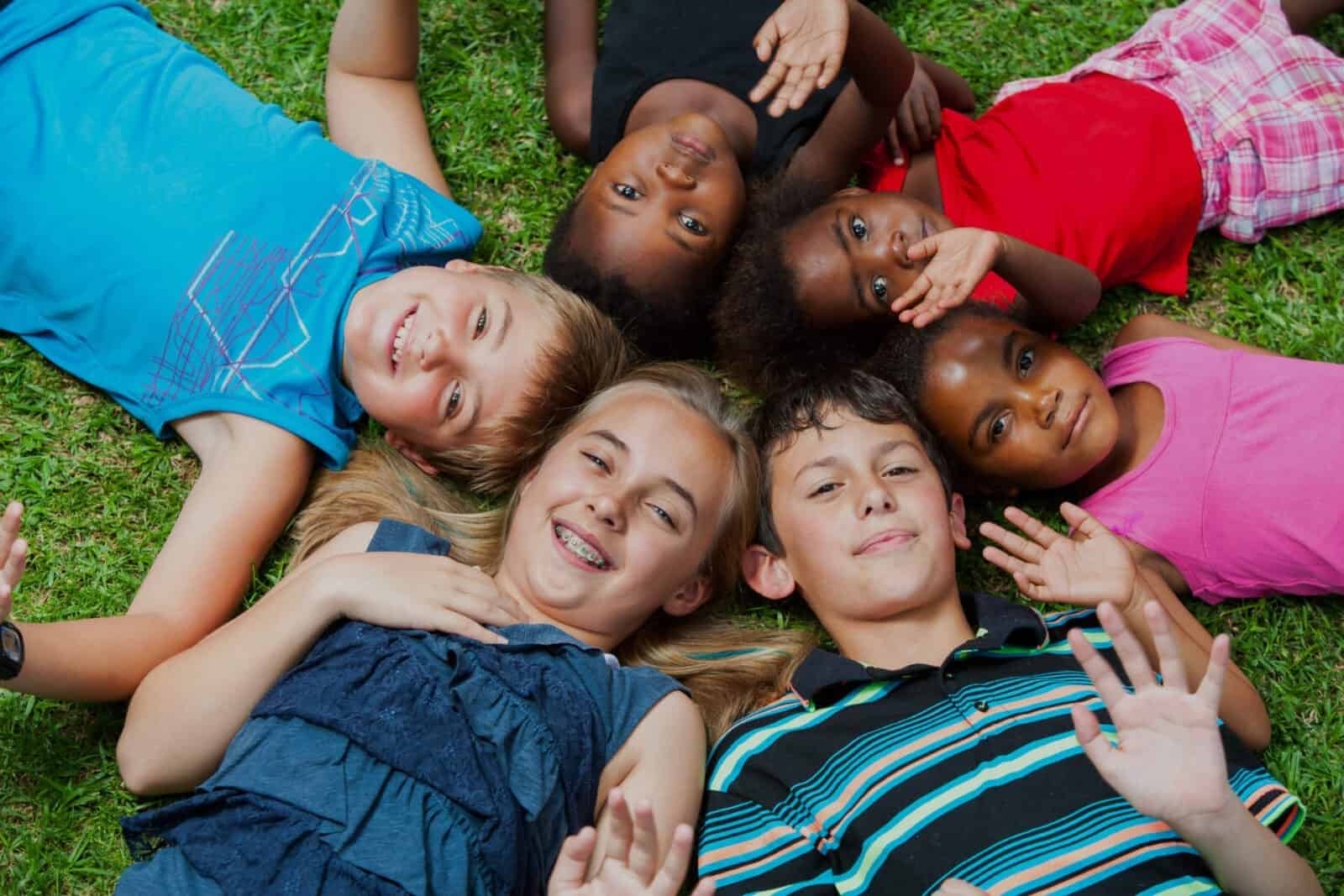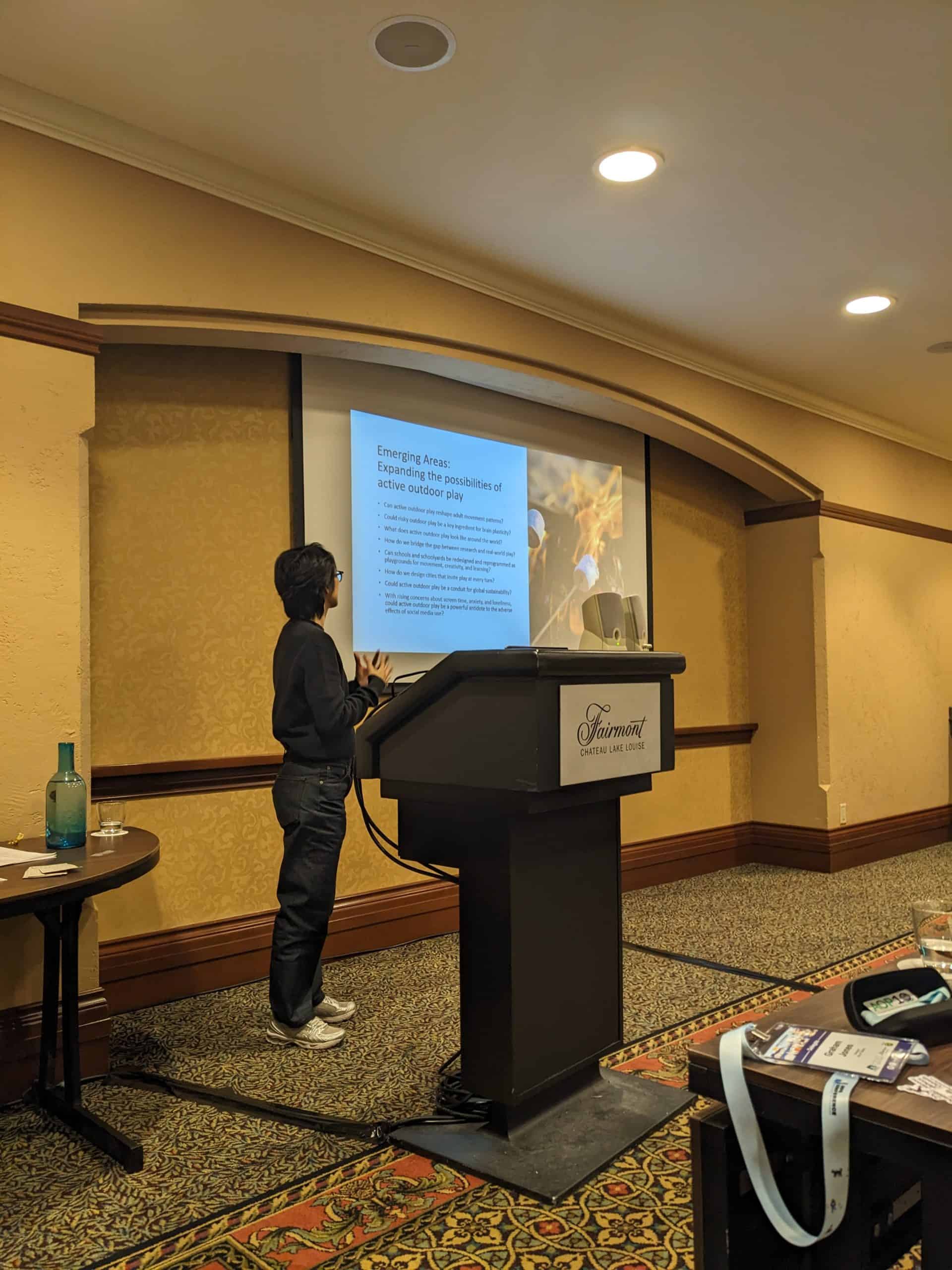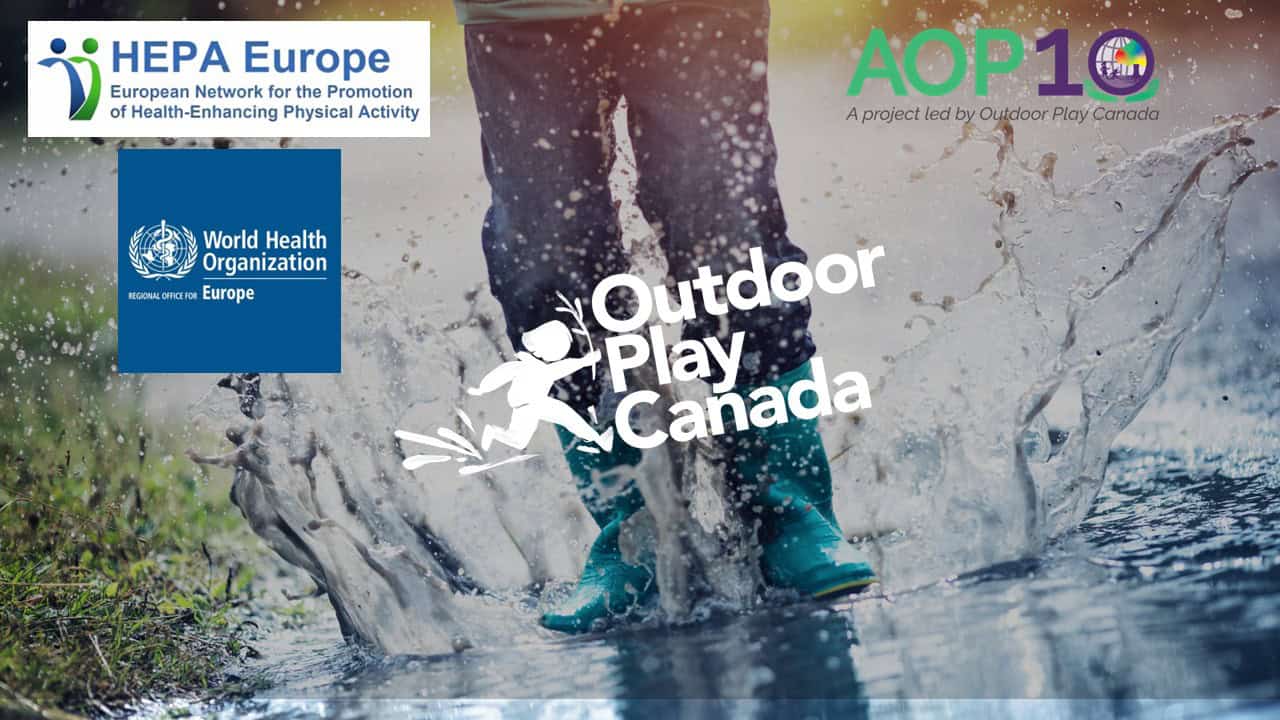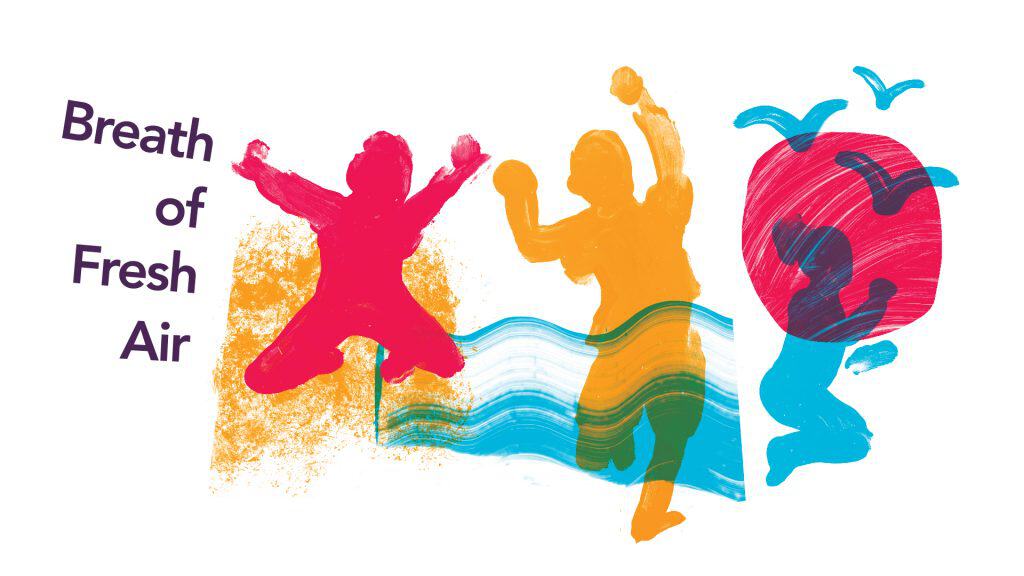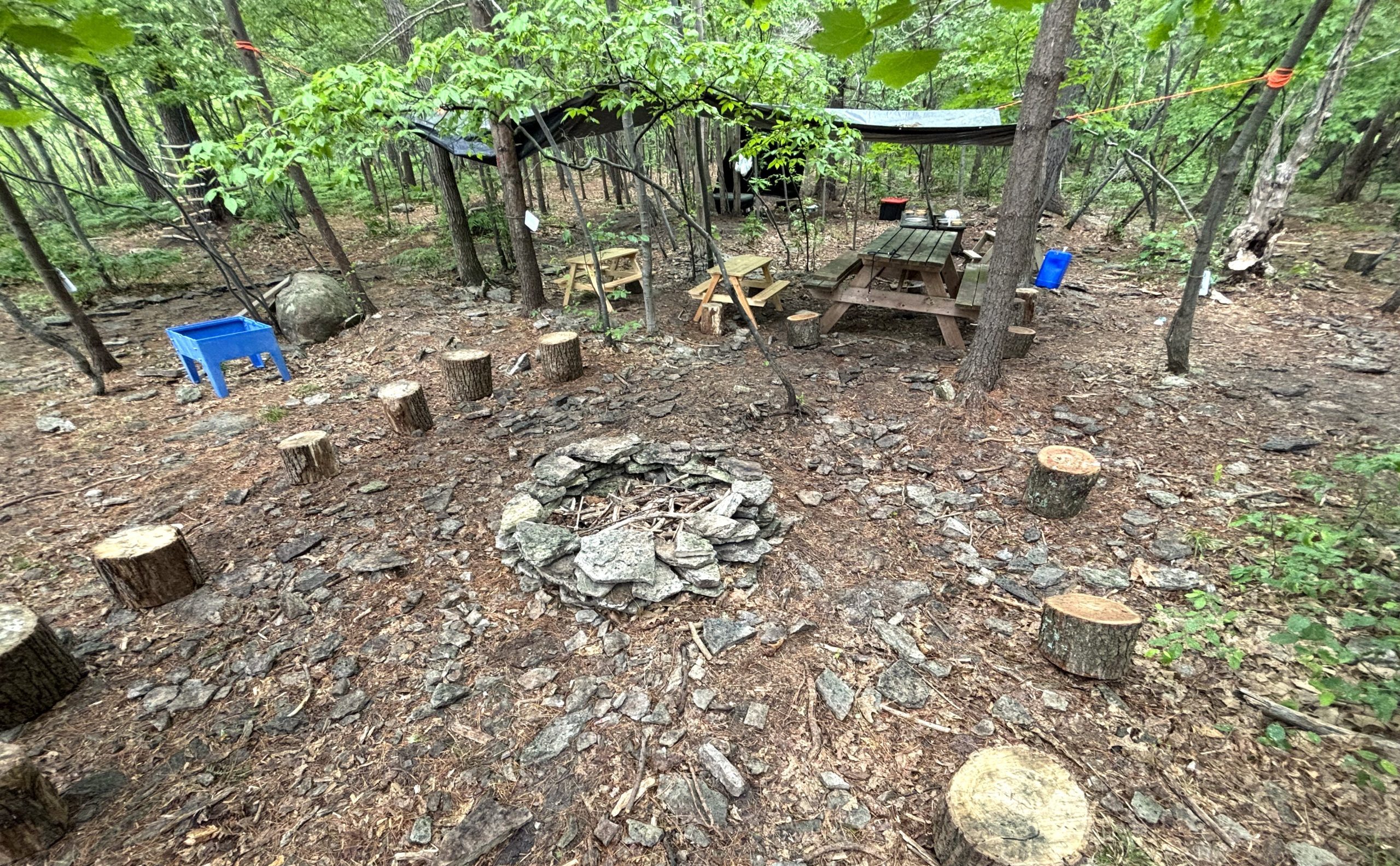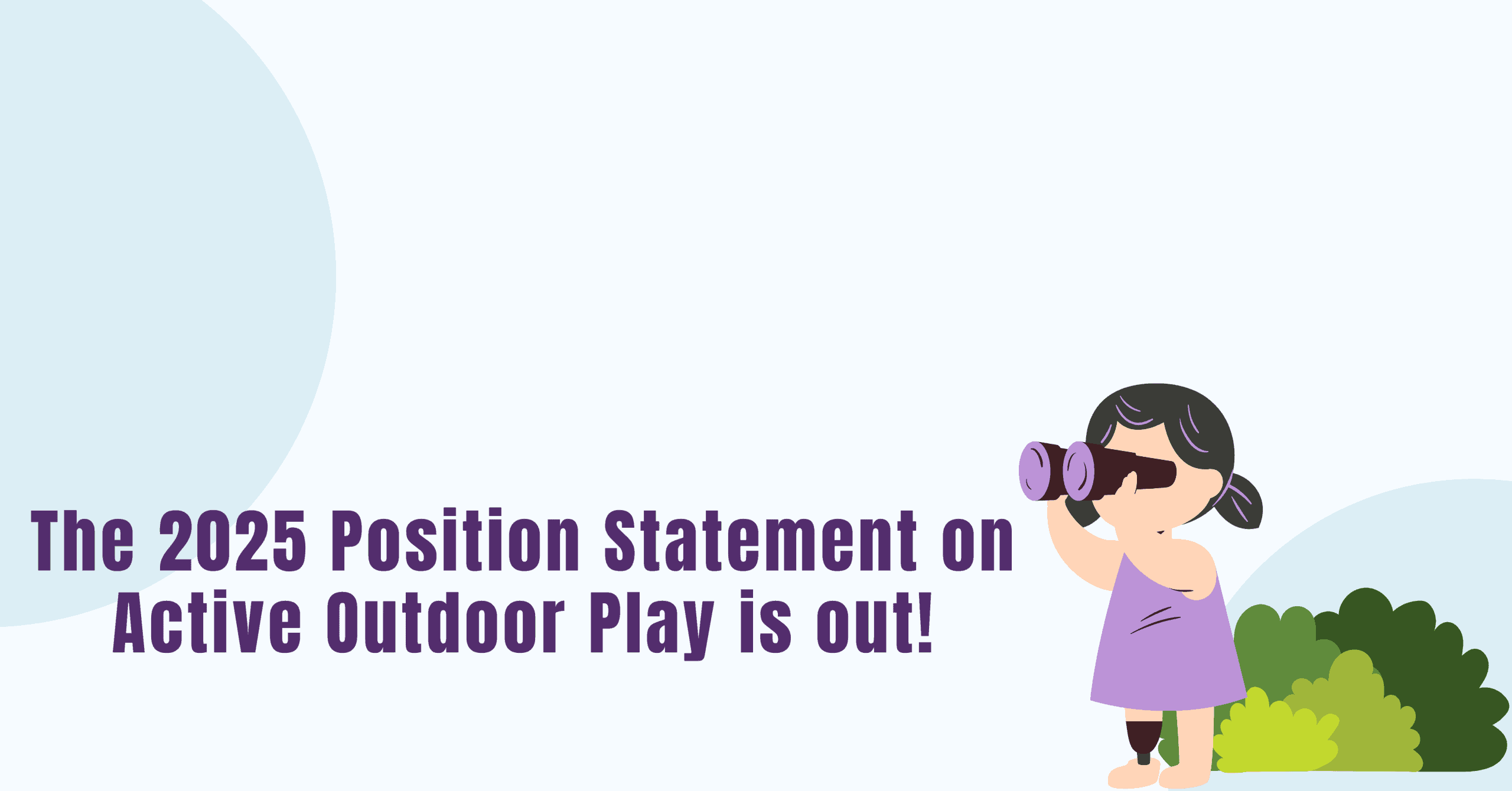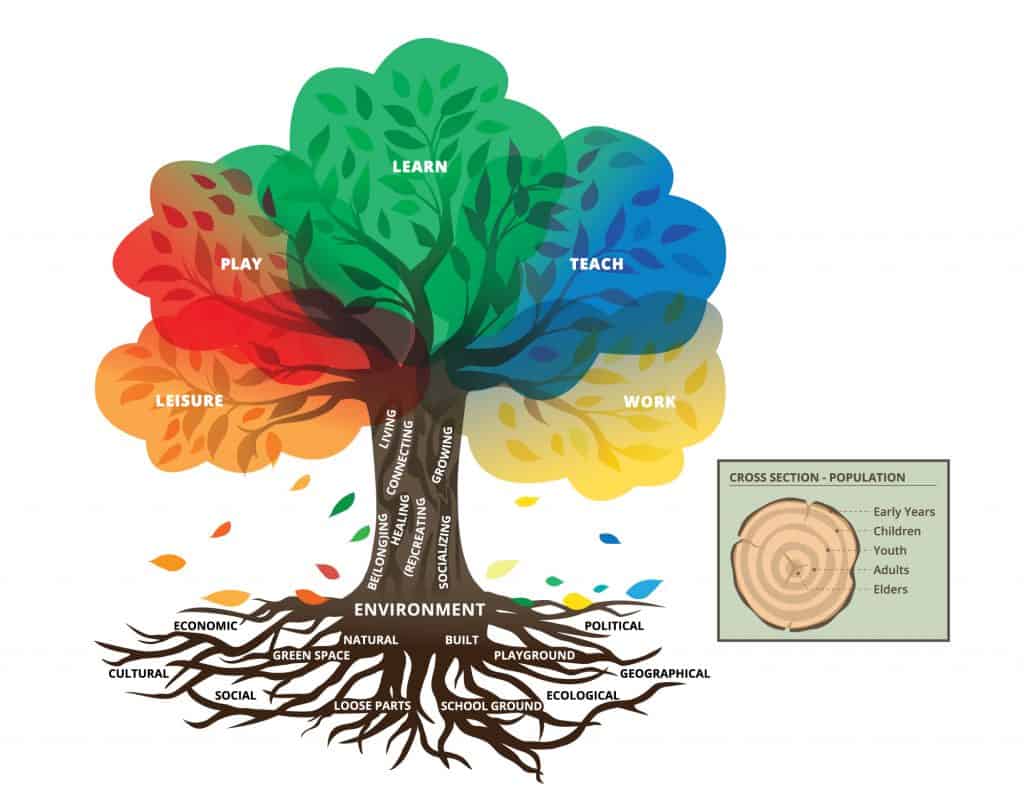| Outdoors |
|
Any open-air, wild, natural, or human-made space
Nuances: The space may include a temporary or fixed cover (e.g., awning or roof) but maintain exposure to ambient environmental conditions
|
|
|
Built environment |
Human-constructed physical surroundings (e.g., structures, features, facilities) in which people live, learn, work, travel, and play |
|
|
Green space |
Any vegetated land, an area of grass or trees that may also contain bodies of water (e.g., pond, creek), in an urban environment
Nuances: The space may either set apart for recreational or aesthetic purposes or wasteland areas that have been colonized by nature in an otherwise urban environment
|
|
|
Loose parts |
Natural or manufactured play materials with no specific set of directions that can be used alone or combined with other materials, moved, carried, combined, redesigned, lined up, and taken apart and put back together in multiple ways |
|
|
Playground |
A piece of land usually equipped with facilities and/or equipment that is used for outdoor play and recreation |
|
|
School ground |
Proprietary outdoor area on the land of educational institution buildings |
Synonym: School yard |
|
Natural environment |
Non-built surroundings and conditions in nature in which living and non-living things co-exist |
Synonym: Nature |
|
Garden |
Planted, developed, or cultivated land used to grow vegetables, fruit, herbs, flowers, and other living plants and organisms |
|
|
Outdoor place space |
Any outdoor area where people can play |
|
|
| Play |
|
Voluntary engagement in activity that is fun and/or rewarding and usually driven by intrinsic motivation
Nuances: Not all play is self-directed and intrinsically motivated
|
|
|
Outdoor play |
A form of play* that takes place outdoors* |
Co-hyponym: Outdoor recreation |
|
Active play |
A form of play* that involves physical activity of any intensity |
|
|
Free play |
A form of play* that is unstructured and self-directed |
Synonym: Unstructured play |
|
Nature play |
A form of play* that takes place in a natural environment and/or involves interaction with natural elements and features (e.g., water and mud, rocks, hills, forests, and natural loose parts, such as sticks, pinecones, leaves, and grass) |
Co-hyponym: Nature-based recreation |
|
Risky play |
A form of play* that is thrilling and exciting, which involves uncertainty, unpredictability, and varying degrees of risk-taking |
|
|
Social play |
A form of play that involves interacting with others |
|
|
| Learning |
|
The development of knowledge, skills, values, morals, beliefs, and habits |
|
|
Outdoor learning |
Learning* that takes place outdoors* |
|
| Teaching |
|
The process of facilitation of learning |
|
|
Outdoor teaching |
Teaching* that takes place outdoors* |
|
| Education |
|
The process of learning* and teaching* |
|
|
Outdoor education |
Education* that takes place outdoors* |
|
|
Environmental education |
A form of education* aimed at increasing knowledge, awareness, and appreciation of the environment |
|
|
Forest schools |
An educational* approach that includes regular and repeated access to natural space and participant-directed, emergent, and place-based learning |
Co-hyponym: Forest kindergartens, forest preschools, forest programs |
|
Outdoor classroom |
A shared space of learning* and teaching* in the school context that is entirely outdoors
Nuances: Unlike outdoor education, outdoor classroom takes regular pedagogy and curriculum outdoors in the school context
|
|
|
Place-based learning |
Learning* that considers the importance of connecting learners with their community by anchoring pedagogy within the context of the locally natural, cultural, and social ecosystems
Nuances: The learning focuses on a specific physical space which may or may not involve the natural environment
|
Co-hyponym: Place-based education |
|
Land-based education |
An approach to education* that recognizes a deep connection and relationship of reciprocity between people and the land
Nuances: This is specific to the North American context based on Indigenous epistemology of which the land is being understood beyond physical sense and as spiritual, emotional, and intellectual sense
|
Co-hyponym: Land-based learning |
|
Nature-based education |
A form of teaching* and learning* situated in the context of outdoor natural settings |
Co-hyponym: Nature-based learning, nature-based preschool |
|
Learning for sustainability |
A cross-curricular approach to life and learning* which enables learners, educators, schools, and their wider communities to build a socially just, ecologically sustainable, and equitable society |
|
|
| Other terms related to PLaTO |
|
Outdoor activity |
Leisure, recreational, educational, occupational, and/or health-enhancing activity engaged in the outdoors |
|
|
Outdoor time |
Time spent outdoors |
|
| *Refer to the definition of the corresponding root term |


